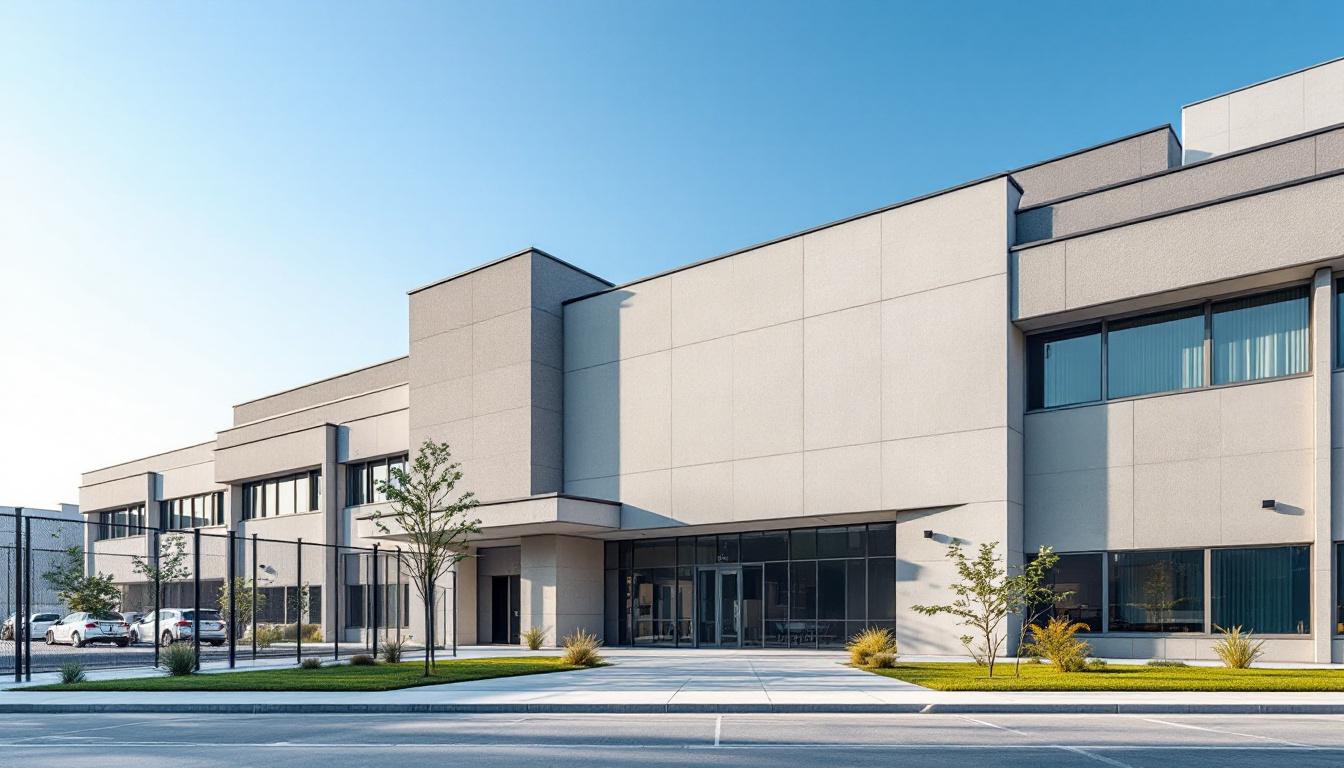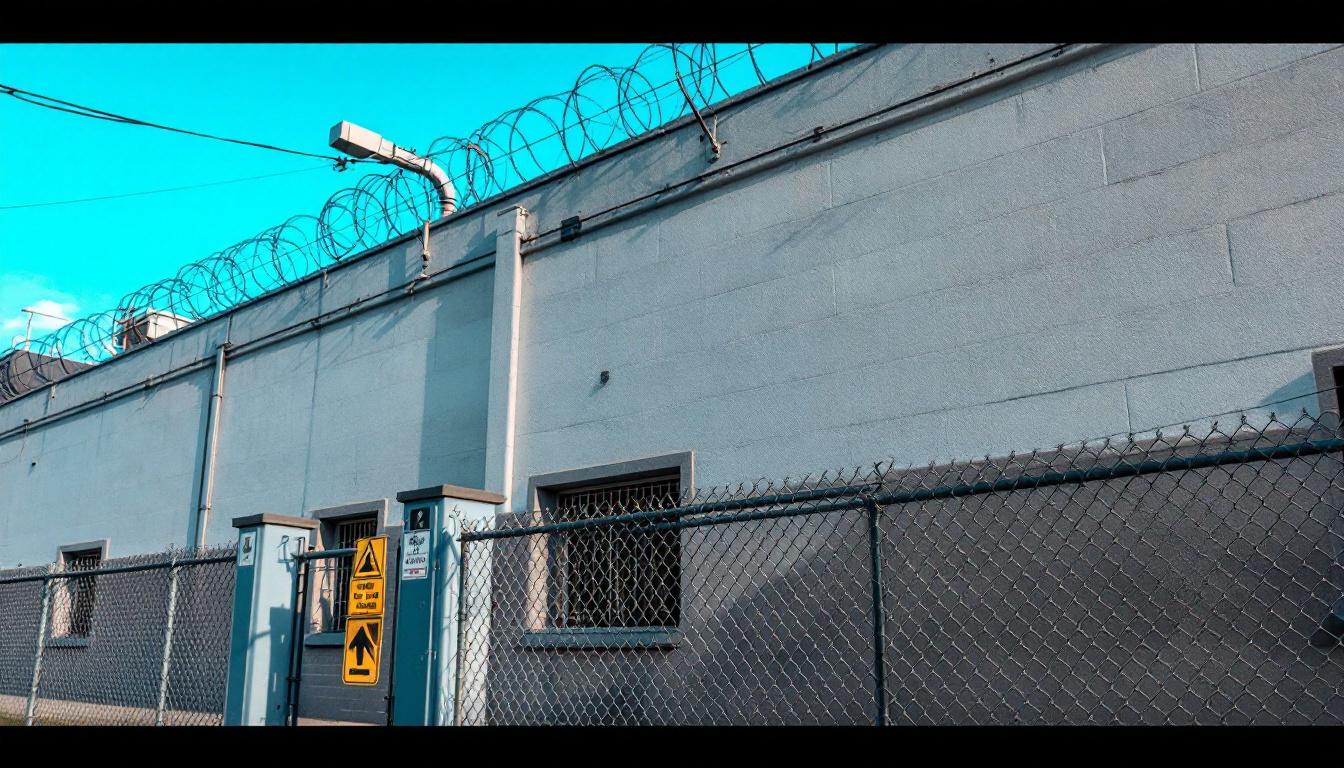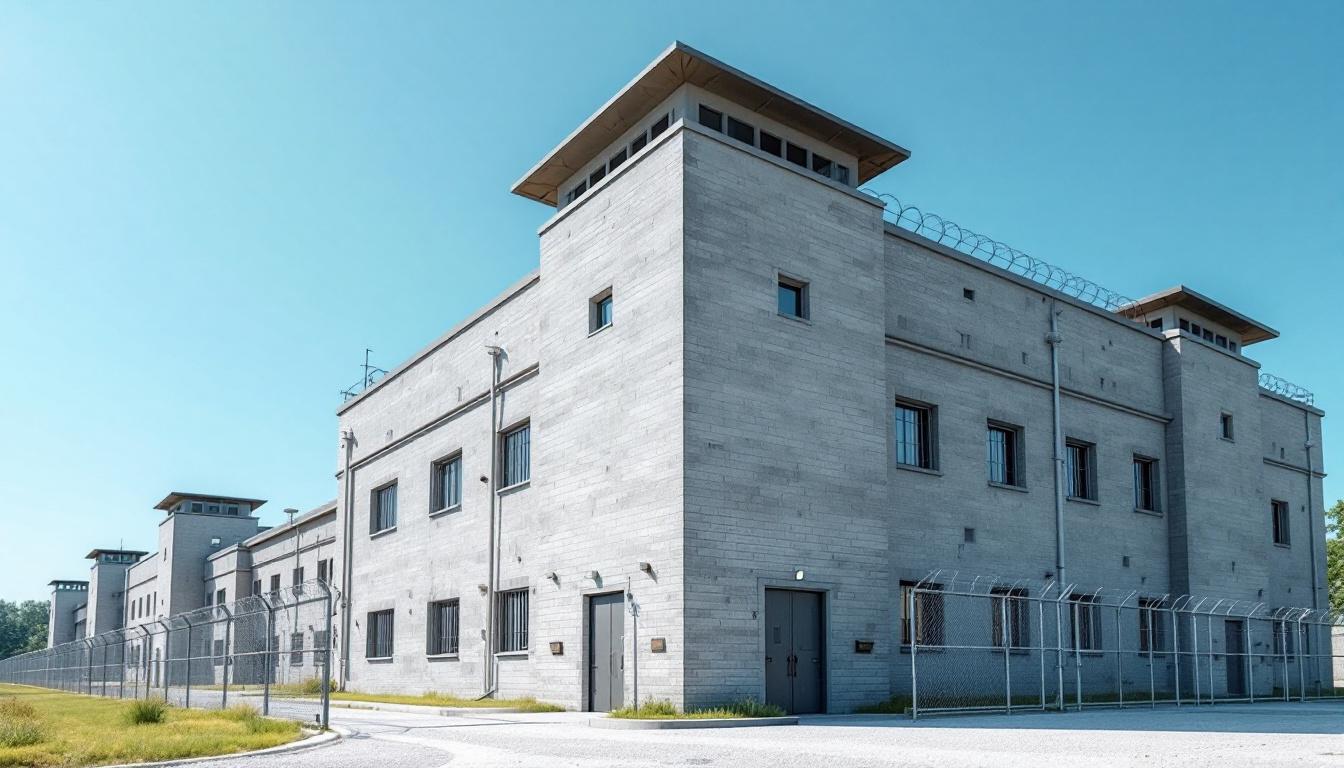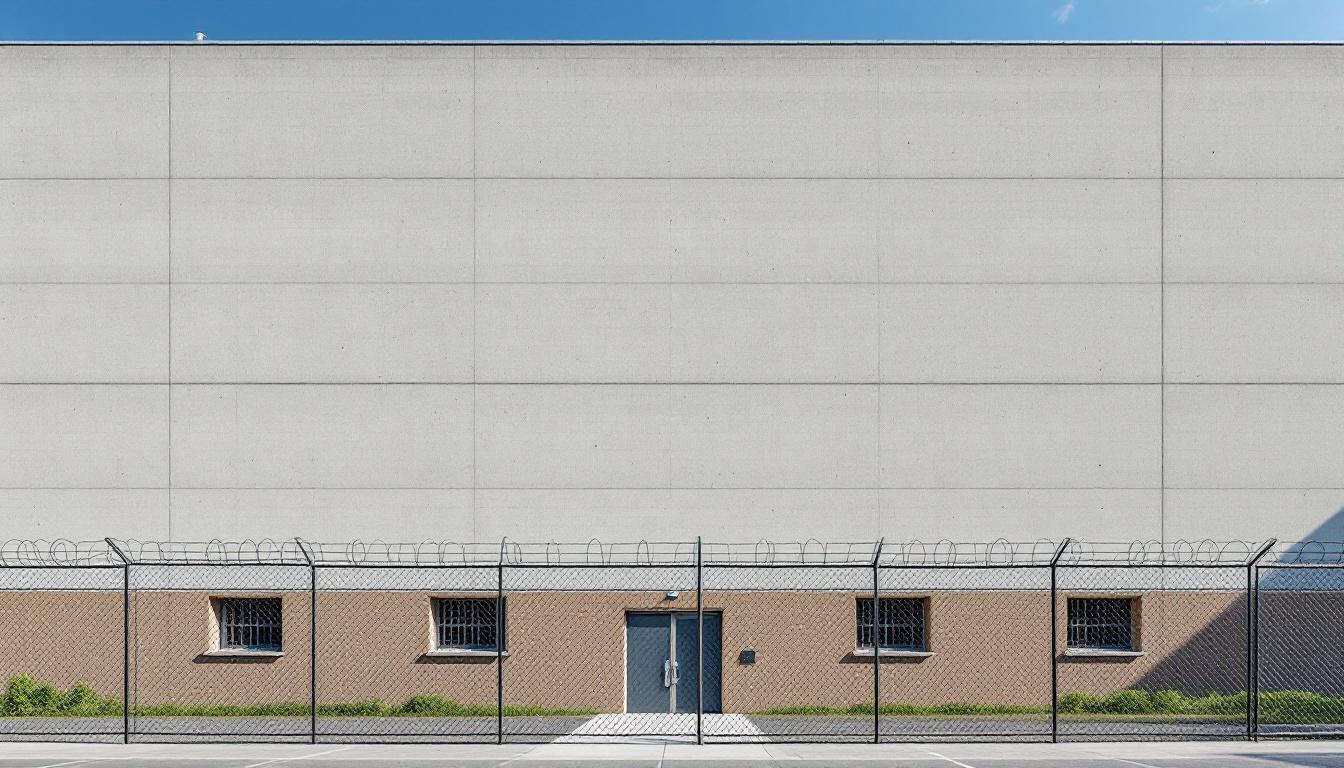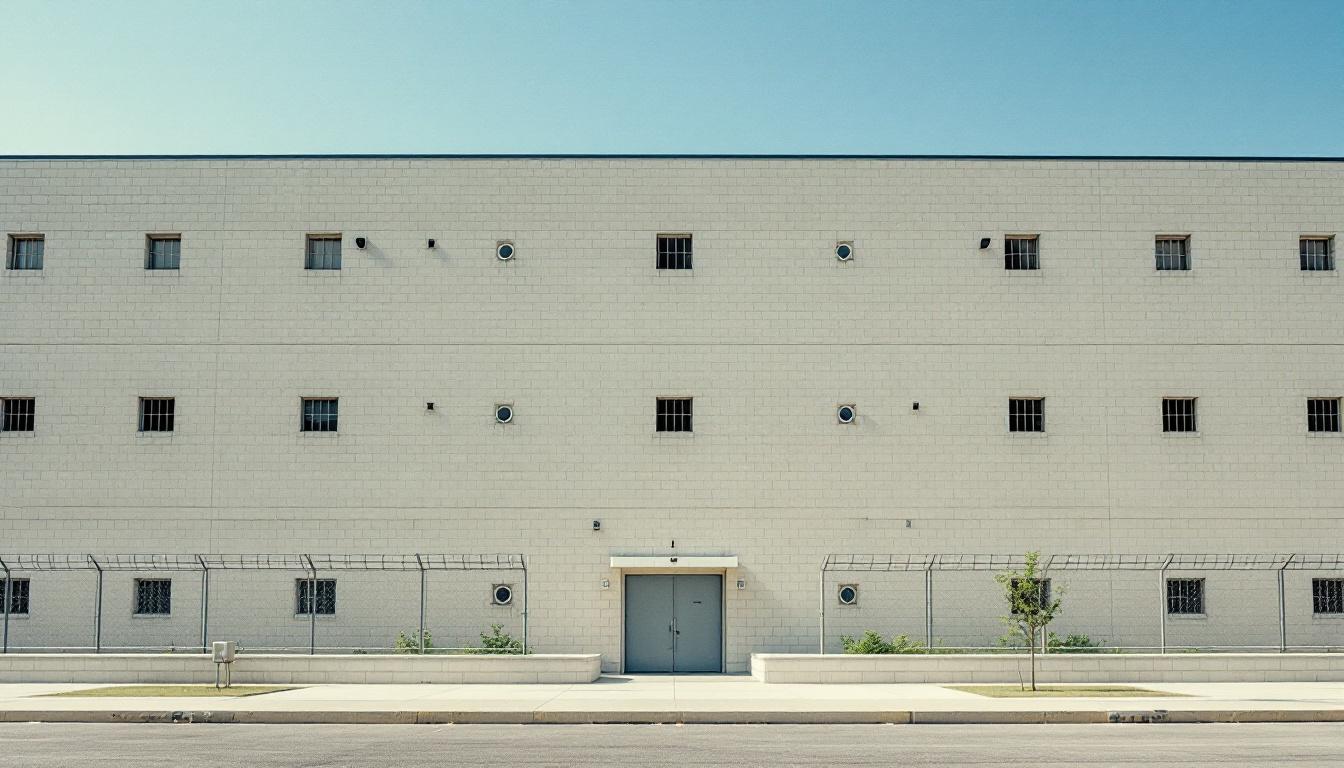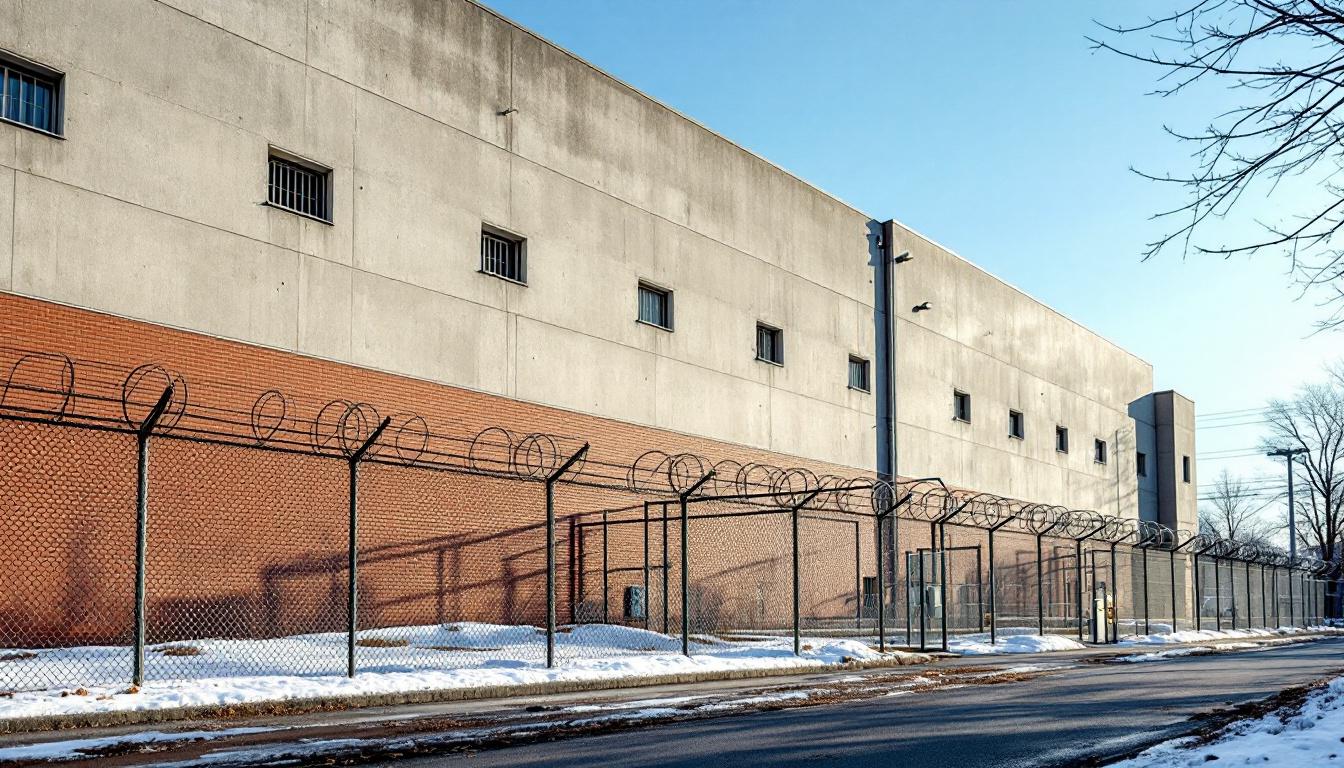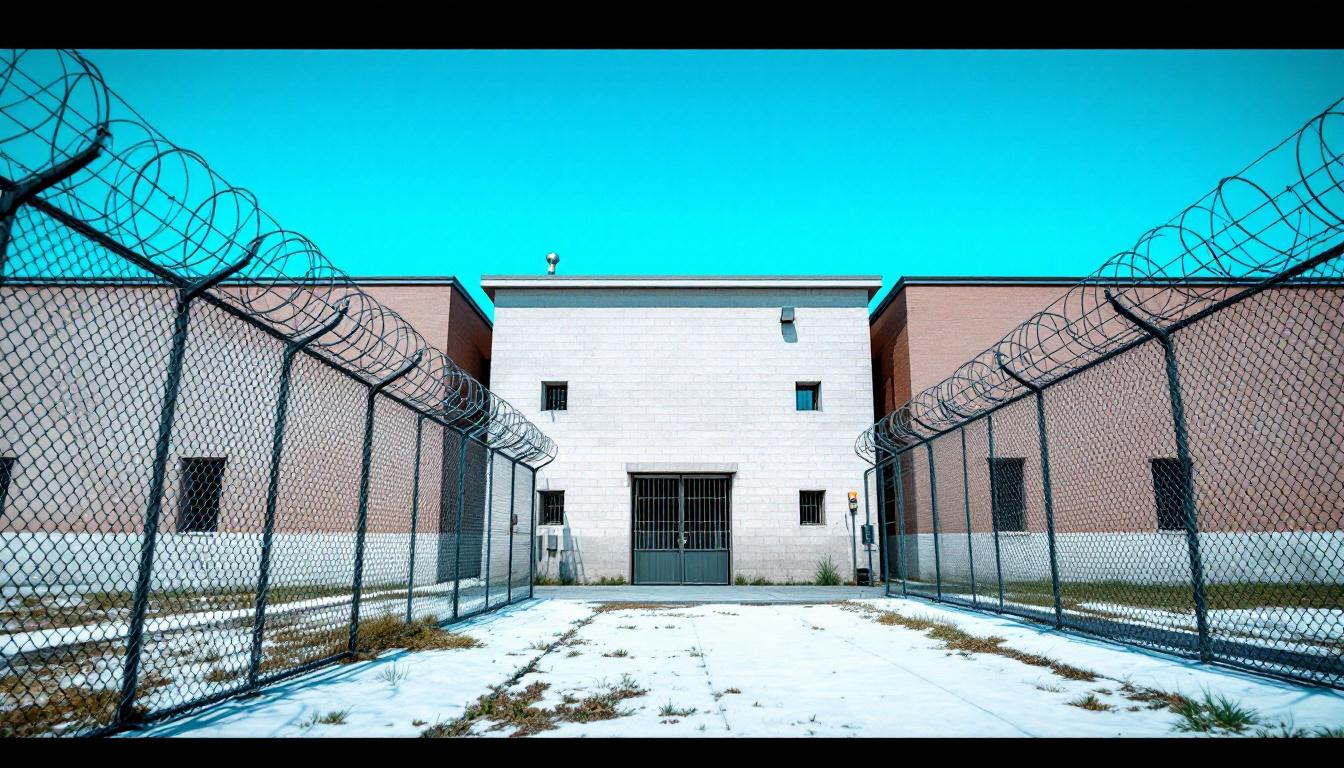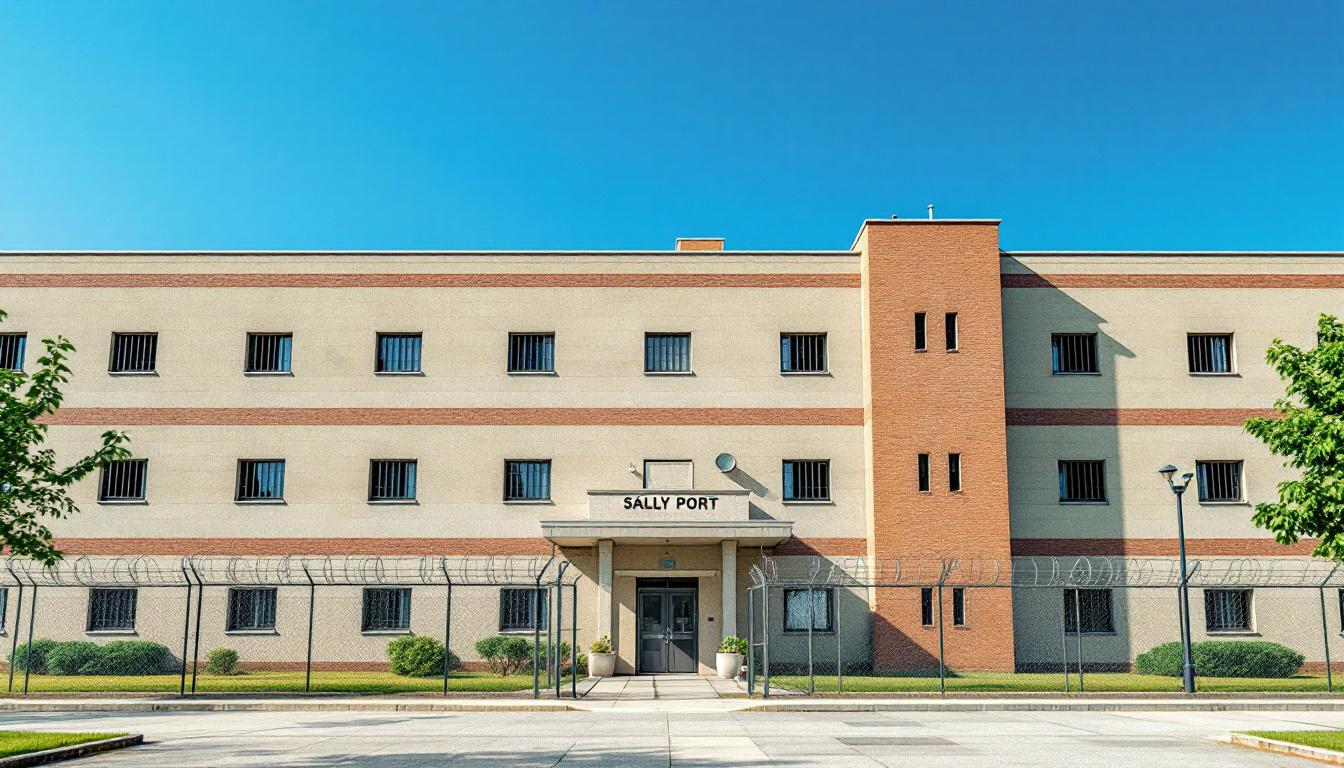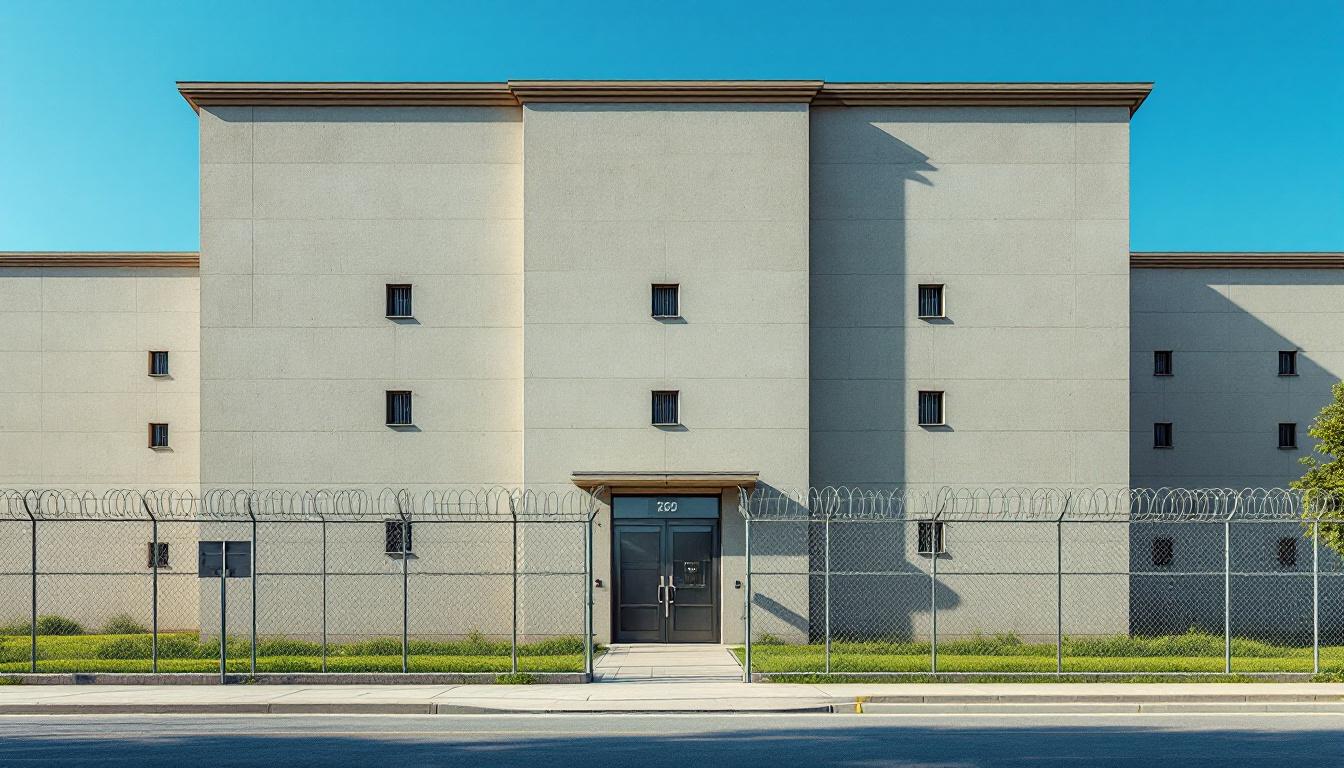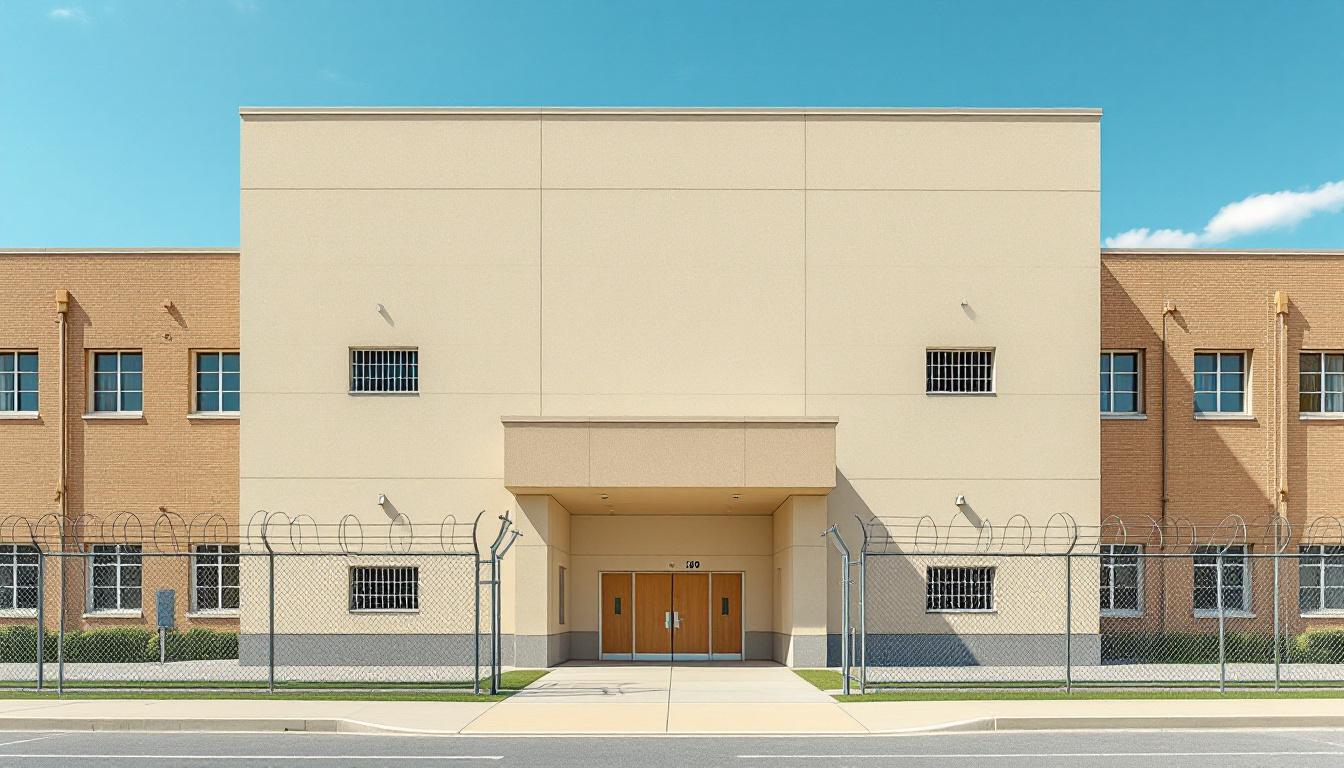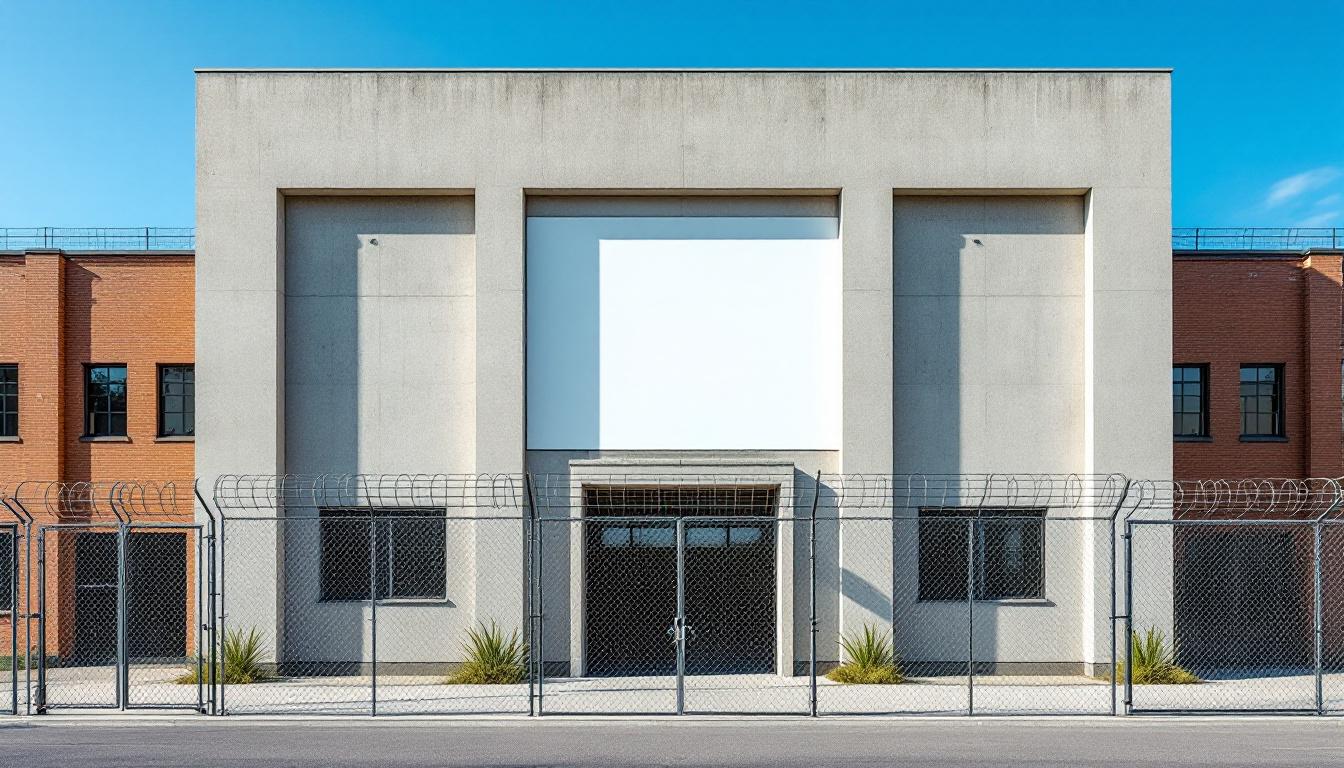
Quick Navigation
How to contact an inmate at Fairfax County Detention Center
This comprehensive guide will walk you through how to connect with an inmate at Fairfax County Detention Center. Follow the steps below to find an inmate and send letters and photos:
- Search for the inmate using our search tool below
- Create your account or log in to Penmate
- Write your message (up to 6,000 characters)
- Send instantly - inmates receive printed copies daily
Find an Inmate
Search for an inmate to start communicating today
Tip: You can search by first name, last name, or inmate ID number
To contact a person at Fairfax County Detention Center start by searching for the person on the official facility website. Perform a search by following these steps:
- Step 1: Enter their first name and last name into the search form and click "Search"
- Step 2: Locate their inmate record
- Step 3: Write down their Inmate ID and any housing information provided
Important! Be sure to enter the person's full name. Nicknames should not be used.
How to Send Messages to Inmates

You can use your phone or computer to send emails, letters, and photos to an inmate. Messages are sent electronically to inmate tablets or kiosks at the facility. If you would like to send a message, start by searching for an inmate at Fairfax County Detention Center.
Sending Photos and Postcards

A great way to send love and support to a loved one at Fairfax County Detention Center is to send photos and postcards. It only takes a few minutes to send photos from your phone and it makes a huge difference. You can also mail postcards with words of support and inspiration, or design your own postcard for special moments like birthdays and holidays.
Important! Be sure not to send any explicit photos or they may not be approved by the facility. You can also use a photo printing app like Penmate to make sure your photos are printed at the correct size (4x6 or 3x5) and are mailed according to the rules and regulations of Fairfax County Detention Center.
Frequently asked questions about Fairfax County Detention Center
-
How long does it take to deliver a message?
If you're sending an email message your letter is usually delivered within 24-48 hours. For messages sent via mail you should expect delivery within 3-7 days. All messages will need be approved by Fairfax County Detention Center.
-
How much does it cost to send a message to Fairfax County Detention Center?
You can send a message free using your phone or mail a message via USPS for the price of a $0.60 stamp and envelope. You can also purchase credits or e-stamps from services starting at $1.99.
-
What services can I use to contact an inmate at Fairfax County Detention Center?
Penmate
You can use Penmate to send letters and photos to an inmate from your phone. It's an easy way to stay in touch during your loved one's incarceration. Use the inmate locator to find an inmate's location and contact information, then you can send messages within a few minutes.
Securus messaging
Securus may be another option for communicating with an inmate at Fairfax County Detention Center. You can create a friends and family account and purchase credits to send messages. All messages will be reviewed and must be approved by the facility.
JPay
Some county jails and state prisons may support sending messages with JPay. You must register an account with the system, find your loved one, and purchase stamps to send messages. For some locations you can also attach photos.
Smart Jail Mail
You may also check if Smart Jail Mail is available at Fairfax County Detention Center. Smart Jail Mail is operated by Smart Communications and has contracted with some state and county jails. After purchasing credits, your messages and photos are sent to the facility, printed out, and then handed out to your loved one.
-
What is the mailing address of Fairfax County Detention Center?
Mailing address:
Fairfax County Detention Center
10520 Judicial Dr
Fairfax, VA 22030
Phone: (703) 246-2100Business hours:
- Monday: Open 24 hours
- Tuesday: Open 24 hours
- Wednesday: Open 24 hours
- Thursday: Open 24 hours
- Friday: Open 24 hours
- Saturday: Open 24 hours
- Sunday: Open 24 hours
-
What are the visiting hours at Fairfax County Detention Center?
Visiting hours at Fairfax County Detention Center vary by housing unit and security level. Generally, visits are scheduled on weekends and holidays, with some facilities offering weekday visits. Contact the facility directly at (703) 246-2100 or check their website for the current visiting schedule. Visits typically last 30-60 minutes and must be scheduled in advance.
-
What items are prohibited when sending mail to Fairfax County Detention Center?
Prohibited items typically include: cash, personal checks, stamps, stickers, glitter, glue, tape, staples, paperclips, polaroid photos, musical or blank greeting cards, hardcover books, magazines with staples, and any items containing metal or electronics. Only send letters on plain white paper with blue or black ink. Photos must be printed on regular photo paper (no Polaroids). Always check with Fairfax County Detention Center for their specific mail policies.
-
How do I send money to an inmate at Fairfax County Detention Center?
You can send money to an inmate at Fairfax County Detention Center through several methods: 1) Online using JPay, Access Corrections, or the facility's approved vendor, 2) Money orders mailed directly to the facility with the inmate's name and ID number, 3) Kiosks located in the facility lobby, or 4) Over the phone using a credit or debit card. Fees vary by method, typically ranging from $2.95 to $11.95 per transaction.
-
Can I schedule a video visit with an inmate at Fairfax County Detention Center?
Many facilities now offer video visitation as an alternative to in-person visits. At Fairfax County Detention Center, video visits may be available through services like Penmate, Securus Video Connect, GTL, or ICSolutions. Video visits typically cost $10-20 for 20-30 minutes and must be scheduled in advance. You'll need a computer or smartphone with a camera and reliable internet connection. Contact the facility for their specific video visitation policies and approved vendors.
-
What identification do I need to visit an inmate at Fairfax County Detention Center?
All visitors must present valid government-issued photo identification such as a driver's license, state ID, passport, or military ID. Minors must be accompanied by a parent or legal guardian who can provide the minor's birth certificate. Some facilities require visitors to be on the inmate's approved visitation list, which may require a background check. Contact Fairfax County Detention Center for specific ID requirements and visitor approval procedures.
-
How can I find out an inmate's release date?
To find an inmate's release date at Fairfax County Detention Center, you can: 1) Use the online inmate search tool if available, 2) Call the facility's records department, 3) Contact the inmate's case manager or counselor, or 4) Have the inmate provide this information during a call or visit. For privacy reasons, some facilities only release this information to immediate family members.
Facility Overview
Contact Information
Fairfax County Detention Center10520 Judicial Dr
Fairfax, VA 22030
Phone: (703) 246-2100
Official Website
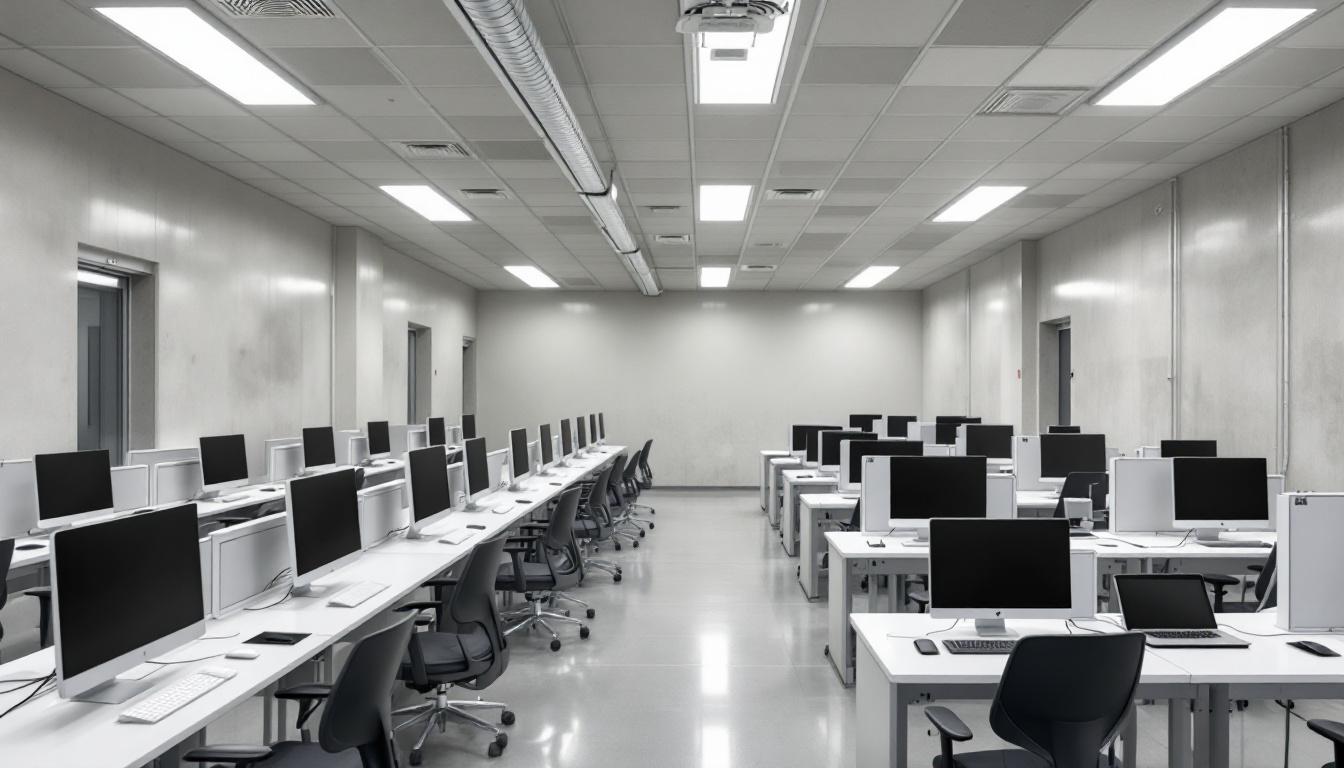
About Fairfax County Detention Center
**Fairfax County Adult Detention Center Overview**
Operating as a county correctional facility in Fairfax County, Virginia, the Adult Detention Center (ADC) maintains comprehensive policies designed to facilitate communication between inmates and their families while ensuring security protocols are met. The facility has implemented a modernized mail system through Smart Communications, requiring all personal correspondence to be processed electronically, which allows families to maintain important connections through letters, greeting cards, photographs, and children's drawings that are scanned and delivered to inmates' electronic accounts.
The detention center houses individuals awaiting trial and those serving shorter sentences, typically offering various programs aimed at rehabilitation and eventual community reintegration. Legal and professional correspondence maintains direct delivery channels to preserve attorney-client privilege, while the facility's Property Officer handles official documents and transactional materials. This dual-track communication system reflects the institution's commitment to balancing security needs with inmates' rights to maintain family relationships and legal representation.
Located in Fairfax County, the ADC serves one of Virginia's most populous jurisdictions and operates within a framework that recognizes the importance of family connections during incarceration. The facility's electronic mail system, while requiring specific addressing protocols and sender identification, enables families to share personal moments through photographs and correspondence, supporting the emotional well-being of inmates and potentially contributing to more successful community reintegration outcomes upon release.
Programs & Services
The Fairfax County Adult Detention Center maintains a structured communication system that facilitates inmate connections with family and legal representatives through their partnership with Smart Communications. This electronic mail processing system allows inmates to receive general correspondence, photographs, and personal communications through secure digital delivery, while ensuring that legal mail from attorneys and official court documents receive direct processing through appropriate channels.
Beyond communication services, the facility typically provides educational programming that may include GED preparation, basic literacy courses, and vocational training opportunities designed to support successful reentry. Inmates often have access to substance abuse counseling programs, mental health services, and religious programming to address various rehabilitative needs during their incarceration. The facility may also offer work programs that allow inmates to gain job skills while contributing to facility operations.
Support services at the detention center commonly include medical care, library access, and recreational activities that promote physical and mental well-being. Family visitation programs help maintain important community connections, while case management services may assist inmates in preparing for release and connecting with community resources. These comprehensive services work together to create a structured environment focused on rehabilitation and successful community reintegration for the inmate population.
Daily Life & Visitation
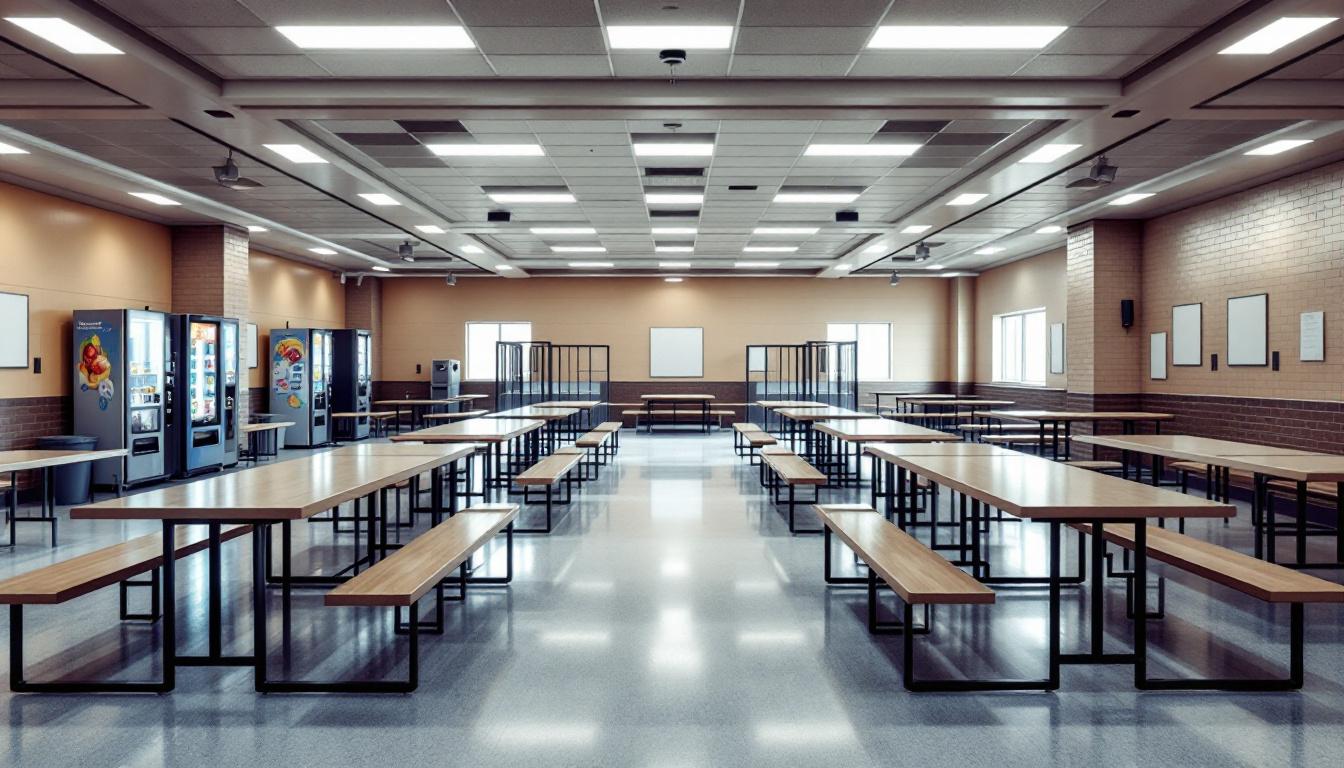
Communication with loved ones forms a central part of the experience for individuals housed at the Fairfax County Adult Detention Center, with all personal correspondence now processed through Smart Communications rather than traditional direct mail delivery. This electronic system means that letters, greeting cards, children's drawings, and photographs from family members are scanned and delivered digitally to inmates' electronic accounts after screening by facility staff. The process requires senders to include complete return addresses and correct inmate information, creating a structured but accessible way for families to maintain contact.
The facility typically operates on a structured daily schedule that may include designated times for accessing electronic messages, participating in educational or vocational programs, and engaging in recreational activities. Inmates often have access to common areas during specified hours, where they might watch television, play games, or socialize with others in their housing unit. Meal times are generally scheduled at regular intervals throughout the day, with inmates receiving meals in dining areas or their housing units depending on the facility's current operational procedures.
Legal communications receive special handling at the detention center, with attorney correspondence sent directly to the facility rather than through the third-party vendor system. This ensures privileged communications remain confidential and are processed more quickly than general mail. The facility also accommodates official documents through its Property Officer, demonstrating the various channels available for different types of important correspondence. While daily routines may vary based on housing assignments and individual circumstances, the communication systems in place help maintain crucial connections between inmates and their support networks during their time at the facility.
Ready to Connect?
Start communicating with your loved one today
Search for an Inmate
